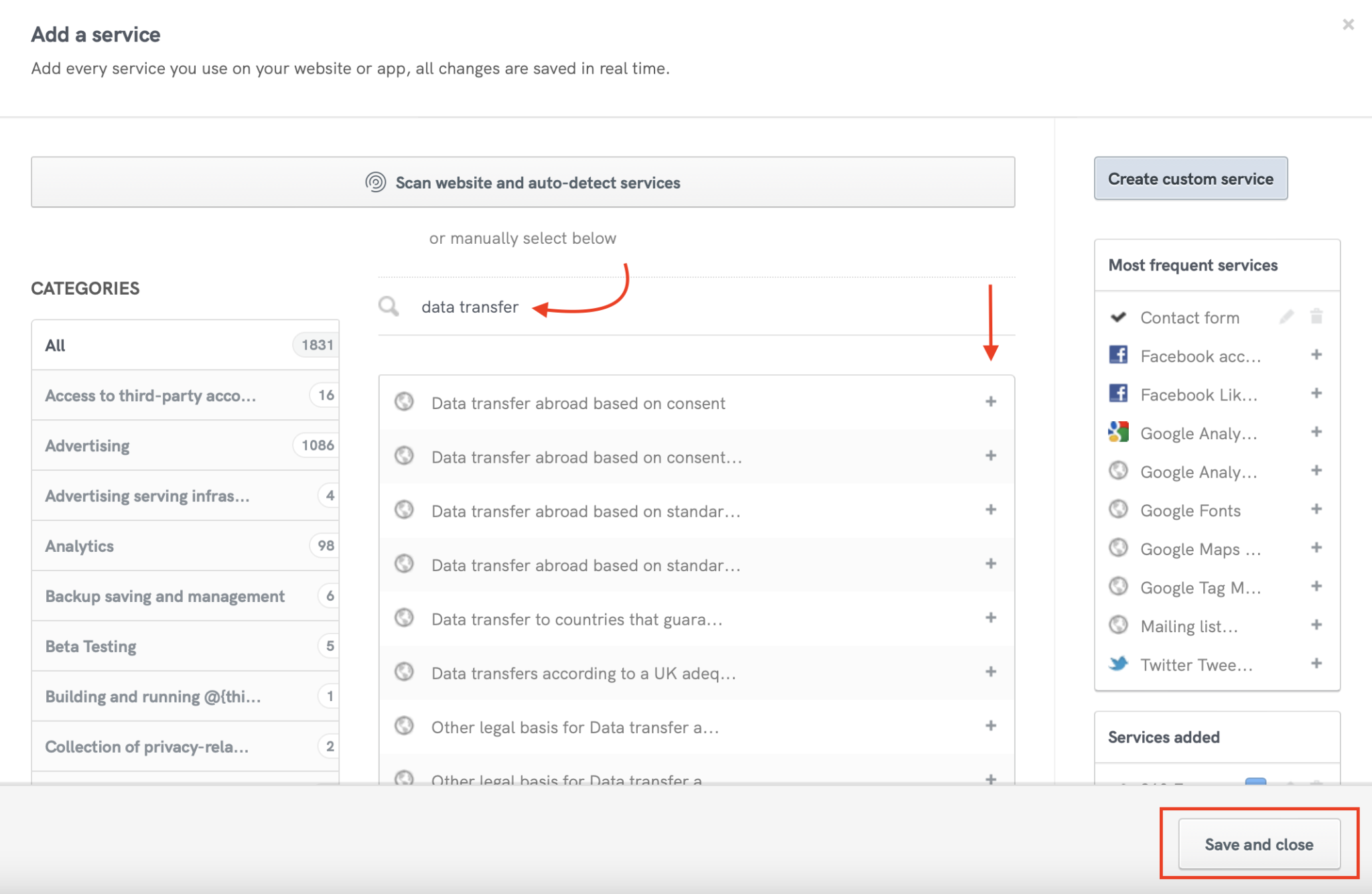According to the GDPR, to transfer personal data outside the European Union, you need to make sure there are specific data protection standards in place. If there aren’t, then transfers are not allowed.
However, to make transfers possible, there are several legal bases on which you could rely. One of these are Standard Contractual Clauses (SCCs).
In this short guide, we’ll explain everything you need to know about Standard Contractual Clauses, when you may need to rely on SCCs and what you should do to transfer data outside the EU.

Standard Contractual Clauses (SCCs) are standardised clauses, approved by the European Commission, that allow the transfers of data outside the European Economic Area (EEA).
Both parties involved in the transfer need to sign an agreement containing the Standard Contractual Clauses, without altering their text. As stated by the European Commission, SCCs can be added in any “contractual arrangement” between the parties.
👉 Standard Contractual Clauses were first mentioned in the Data Protection Directive of 1995. According to this Directive, data transfers outside the EU were allowed only when certain data protection standards were met, or when there were Standard Contractual Clauses in place. In 2018, the GDPR replaced the Data Protection Directive, keeping the same mention to SCCs.
👉 Fast forward to July 2020, the Schrems II ruling invalidated the transfer agreement between EU and USA, the Privacy Shield. SCCs have become essential for any kind of data transfer between these countries. However, they are not binding for the US government, but only for the company signing the agreement.
👉 In order to face the current challenges and facilitate the transfer of data between the EU and the US, the European Commission revised the clauses. On June 4th, 2021, the Commission adopted two sets of Standard Contractual Clauses:
SCCs aren’t always required.
In fact, you first need to check if there’s an adequacy decision in place. Usually, when the level of data protection is the same as the GDPR, the European Commission issues an adequacy decision. In that case, there’s no need for Standard Contractual Clauses.
💡 So far, the only countries for which the European Commission has issued an adequacy decision are: Andorra, Argentina, Canada (commercial organisations), Faroe Islands, Guernsey, Israel, Isle of Man, Japan, Jersey, New Zealand, Republic of Korea, Switzerland, the United Kingdom and Uruguay.
Once you’re sure of this aspect, you also need to ensure that SCCs are the mechanism that applies to your activity. If so, then you need to sign an agreement containing Standard Contractual Clauses.
If you’re transferring data outside the EEA, you also need to disclose it in your privacy policy. With iubenda, this is really easy:

As we already mentioned, your Standard Contractual Clauses can either be added to any agreement you have with the party you’re transferring data to, or they can be a document on their own.
Creating your SCCs is easier than you think, because you need to follow the text suggested by the European Commission strictly.
Yes, Standard Contractual Clauses aren’t the only way you can transfer data outside the EEA, you have other alternatives:
If you’re transferring data, you need to disclose it in your privacy policy! Failure to do it, could invalidate your activity.
Attorney-level solutions to make your websites and apps compliant with the law across multiple countries and legislations.